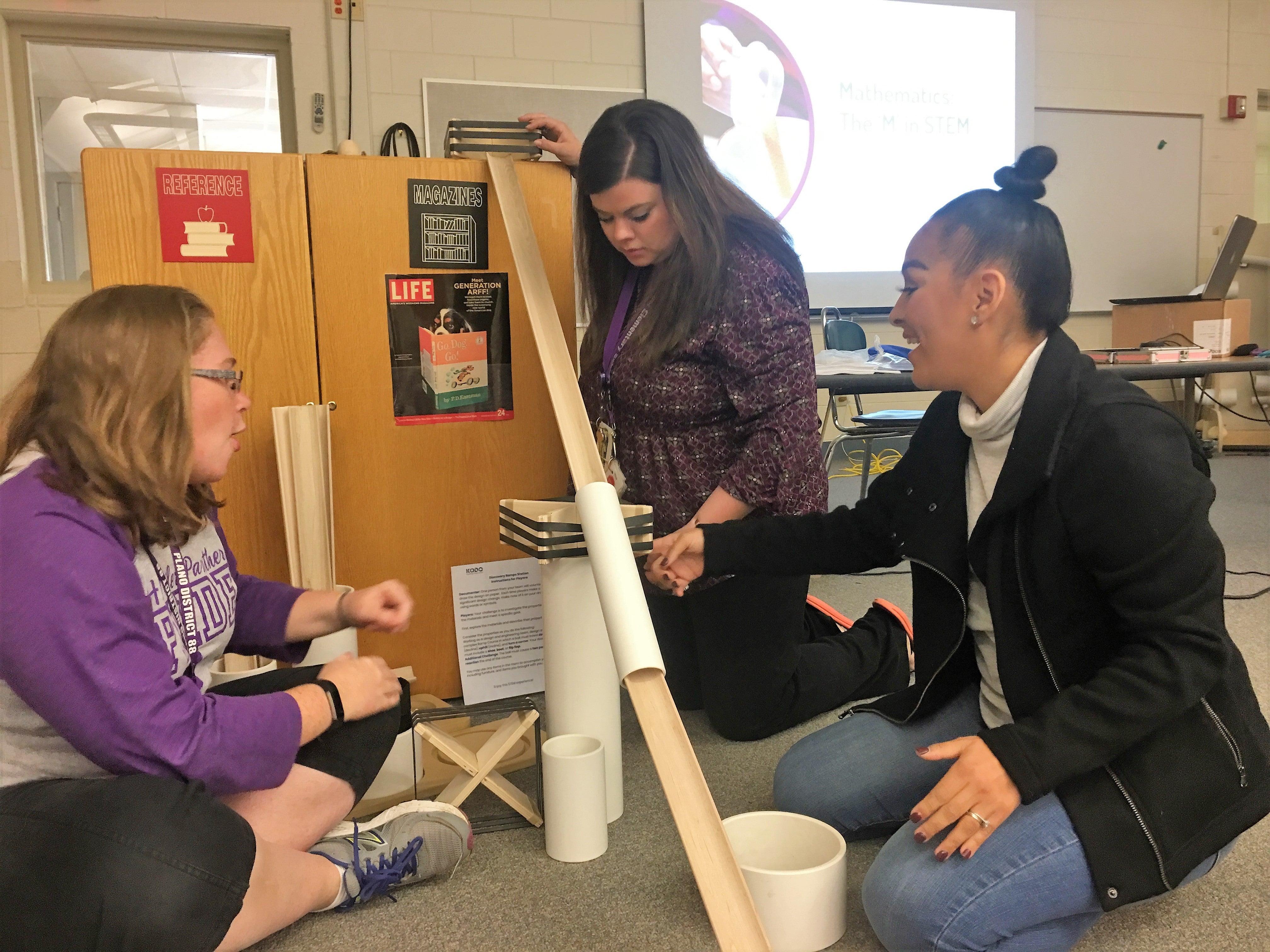Investigation-based Professional Development
Kodo’s Professional Development program enhances our overall vision and commitment to supporting educators. Our sessions create opportunities for educators to recognize, identify, and create implementation plans for thoughtful facilitation to support children’s learning and development.

In-Person Professional Development
Kodo’s In-Person Professional Development services include sessions and materials that inform and transform an educator’s practice by:
- Translating theory into practice
- Providing hands-on interactive experiences for adult learners
- Using multimedia resources to observe and model successful practical strategies
- Offering opportunities for professional reflection
Pricing
Half day format
Full day format
Keynote/Special Event
*plus travel expenses
Available Topics
Diving Deeper Into STEM Play to Foster Literacy
Enhancing the Environment to Foster Engineering
Fostering Meaningful Investigations through play and provocation
Infant and Toddler Engineering
Loose Parts Play With Infants and Toddlers
Making Sense of Math
STEM Learning Utilizing Literacy
The ‘E’ in STEM: Demystifying Engineering
The ‘S’ in STEM: the Physics of Ramps
Tinkering, Playing, and Problem Solving to Build Relationships
Uncovering STEM through Play
Using Kodo’s Design Process to Facilitate Engineering Play Behaviors

Live Virtual Training
A virtual format of our sessions led by our Certified trainers to support your team.
Pricing
Half day format
Full day format

Virtual Coaching
Individualized sessions for teams of 10-15 participants to receive consistent support throughout the year with material implementation, environments, and much more.
Pricing
1 Hour Virtual Coaching Session
Kodo’s Investigation Based Teaching Practices™ are aligned with and strengthen Classroom Organization and Instructional Support strategies addressed in the CLASS™.
These practical strategies support the responsive facilitation of children’s learning through investigative open-ended play. Kodo’s Investigation-Based Teaching Practices™ help educators recognize and establish habits of thoughtful responsive facilitation.
Investigation based teaching practices™ are founded on the following concepts: